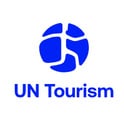COVID-19: UNWTO Calls On Tourism To Be Part Of Recovery Plans
- Tourism faces up to the COVID-19 challenge and public health is paramount due to the fundamental people-to-people nature of the sector.
- A cross-cutting economic activity unlike any other, and an integral part of the Sustainable Development agenda, tourism will play a key role in future recovery efforts.
- UNWTO calls on governments, international organizations and donor agencies to include tourism as a priority in recovery plans and actions.
- The World Health Organization continues to advise against the application of travel or trade restrictions to countries experiencing COVID-19 outbreaks.
In an update on the sector's response to the coronavirus COVID-19 outbreak, the World Tourism Organization (UNWTO) offers a first assessment pointing to a decrease in international arrivals and receipts in 2020. Public health measures need to be implemented in ways that minimize any unnecessary disruption to travel and trade. Since the start of the outbreak, UNWTO has been working closely with the World Health Organization (WHO) to ensure this is the case.
UNWTO has revised its 2020 prospects for international tourist arrivals to a negative growth of 1% to 3%, translating into an estimated loss of US$ 30 to 50 billion in international tourism receipts. Prior to the COVID-19 outbreak, UNWTO predicted a positive growth of 3% to 4% for this year.
This first assessment expects that Asia and the Pacific will be the worst affected region, with an anticipated fall in arrivals of 9% to 12%. Estimates for other world regions are currently premature in view of the rapidly evolving situation. UNWTO underscores that any estimate must be treated with caution and is likely to be updated.
Preparing for recovery
UNWTO calls for financial and political support for recovery measures aimed at tourism, and to include support for the sector in the wider recovery plans and actions of affected economies.
The impact of the COVID-19 outbreak will be felt across the whole tourism value chain. UNWTO Secretary-General Zurab Pololikashvili furthermore stresses that "small and medium sized enterprises make up around 80% of the tourism sector and are particularly exposed with millions of livelihoods across the world, including within vulnerable communities, relying on tourism".
Political and financial commitments are key to ensure that tourism can lead wider economic and social recovery, as proven in past disruptions on the back of the highly resilient nature of the sector and its ability to bounce back strongly.
In recent decades, tourism has come of age, and is now firmly established as an important contributor to sustainable development, economic growth, employment and international understanding. As the UN agency responsible for tourism and sustainable development, UNWTO stands ready to provide guidance and support for recovery measures of its members, the private and public tourism sector, including organizers of tourism events and fairs.
RELEVANT LINKS:
- Impact assessment of the COVID-19 outbreak on international tourism
- UNWTO update on tourism's response to Coronavirus disease 2019 (COVID-19)
- Tourism and CODVID-19
- Updated WHO recommendations for international traffic in relation to COVID-19 outbreak
About UN Tourism
The World Tourism Organization (UN Tourism) is the United Nations agency responsible for the promotion of responsible, sustainable and universally accessible tourism.
As the leading international organization in the field of tourism, UN Tourism promotes tourism as a driver of economic growth, inclusive development and environmental sustainability and offers leadership and support to the sector in advancing knowledge and tourism policies worldwide.
Our Priorities
Mainstreaming tourism in the global agenda: Advocating the value of tourism as a driver of socio-economic growth and development, its inclusion as a priority in national and international policies and the need to create a level playing field for the sector to develop and prosper.
Promoting sustainable tourism development: Supporting sustainable tourism policies and practices: policies which make optimal use of environmental resources, respect the socio-cultural authenticity of host communities and provide socio-economic benefits for all.
Fostering knowledge, education and capacity building: Supporting countries to assess and address their needs in education and training, as well as providing networks for knowledge creation and exchange.
Improving tourism competitiveness: Improving UN Tourism Members' competitiveness through knowledge creation and exchange, human resources development and the promotion of excellence in areas such as policy planning, statistics and market trends, sustainable tourism development, marketing and promotion, product development and risk and crisis management.
Advancing tourism's contribution to poverty reduction and development: Maximizing the contribution of tourism to poverty reduction and achieving the SDGs by making tourism work as a tool for development and promoting the inclusion of tourism in the development agenda.
Building partnerships: Engaging with the private sector, regional and local tourism organizations, academia and research institutions, civil society and the UN system to build a more sustainable, responsible and competitive tourism sector.
Our Structure
Members: An intergovernmental organization, UN Tourism has 160 Member States, 6 Associate Members, 2 Observers and over 500 Affiliate Members.
Organs: The General Assembly is the supreme organ of the Organization. The Executive Council take all measures, in consultation with the Secretary-General, for the implementation of the decisions and recommendations of the General Assembly and reports to the Assembly.
Secretariat: UN Tourism headquarters are based in Madrid, Spain. The Secretariat is led by the Secretary-General and organized into departments covering issues such as sustainability, education, tourism trends and marketing, sustainable development, statistics and the Tourism Satellite Account (TSA), destination management, ethics and risk and crisis management. The Technical Cooperation and Silk Road Department carries out development projects in over 100 countries worldwide, while the Regional Departments for Africa, the Americas, Asia and the Pacific, Europe and the Middle East serve as the link between UN Tourism and its 160 Member States. The Affiliate Members Department represents UN Tourism's 500 plus Affiliate members.
